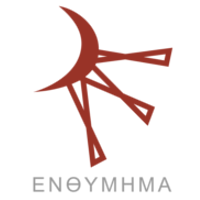Stratigraphy of the Walk and Post-anthropocentric Narratives
The Case of Antonio Moresco
DOI:
https://doi.org/10.54103/2037-2426/24922Parole chiave:
Anthropocene, Eco-narratology, Walking, Gli Increati, ecocriticism, StratigraphyAbstract
Drawing on material ecocriticism, new materialism and eco-narratology, this article proposes an analysis of the narrative structure of the novel Gli increati by Antonio Moresco as a case of “Anthropocene storytelling”. Specifically, I consider the practice of walking as a prompt for the novel complex temporal and spatial dimensions. My discussion situates within a broader reflection on the recent challenges posed by the concept of the Anthropocene to traditional modern epistemologies, based on conceptual dichotomies and linearity. I propose that the novel serves as an example of a narrative organised not by the principle of causality, but by what I call “stratigraphic logic”.
Downloads
Riferimenti bibliografici
Barad, Karen. Meeting the Universe Halfway: Quantum Physics and the Entanglement of Matter and Meaning. Duke University Press, 2007. DOI: https://doi.org/10.2307/j.ctv12101zq
Barad, Karen. “Quantum Entanglements and Hauntological Relations of Inheritance: Dis/continuities, SpaceTime Enfoldings, and Justice-to-Come.” Derrida Today, vol. 3, n. 2, pp. 240-268. DOI: https://doi.org/10.3366/drt.2010.0206
Benedetti, Carla. La letteratura ci salverà dall’estinzione?. Einaudi, 2021.
Caracciolo, Marco. “Strange birds and uncertain futures in Anthropocene fiction.” Green Letters, vol. 24, n. 2, pp. 125-139. DOI: https://doi.org/10.1080/14688417.2020.1771608
Caracciolo, Marco. Narrating the Mesh: Form and Story in the Anthropocene. University of Virginia Press, 2021. DOI: https://doi.org/10.2307/j.ctv1fqvm5p
Caracciolo, Marco, and Gry Ulstein. “The Weird and the Meta in Jeff VanderMeer’s Dead Astronauts.” Configurations, vol. 30, n. 1, 2022, pp. 1-23. DOI: https://doi.org/10.1353/con.2022.0000
Careri, Francesco. Walkscapes. Camminare come pratica estetica. Einaudi, 2006.
Clark, Timothy. “Derangements of Scale.” Telemorphosis: Theory in the Era of Climate Change. Vol. 1. Ed. Tom Cohen. Michigan: Open Humanities, 2012, pp. 148-166.
J. Crutzen, Paul and Eugene F. Stoermer: “The ‘Anthropocene’.” Global Change Newsletter, n. 41 (May 2000), pp. 17-18.
Fressoz, Jean-Baptiste and Christophe Bonneuil. The Shock of the Anthropocene. Verso, 2016.
Genette, Gérard. Narrative Discourse. Trans. Lewin Jan E Oxford and New York: Cornell University Press, 1980. Originally Figure III. Larousse, 1973.
Genette, Gérard.Nuovo discorso del racconto. 1983. Trad. Lina Zecchi. Einaudi, 1987.
Ghosh, Amitav. The Great Derangement: Climate Change and the Unthinkable. University of Chicago Press, 2016. DOI: https://doi.org/10.7208/chicago/9780226323176.001.0001
Haraway, Donna J. Staying with the trouble. Duke University Press, 2016. DOI: https://doi.org/10.2307/j.ctv11cw25q
Iovino, Serenella and Serpil Oppermann. Material Ecocriticism. Indiana UP, 2014. DOI: https://doi.org/10.2307/j.ctt16gzq85
James, Erin and Eric Morel. Environment and Narrative: New Directions in Econarratology. The Ohio State University Press, 2020. DOI: https://doi.org/10.26818/9780814214206
James, Erin. The Storyworld Accord. Econarratology and Postcolonial Narratives. University of Nebraska Press, 2015. DOI: https://doi.org/10.2307/j.ctt1d9898m
Latour, Bruno. Nous n’avons jamais été Modernes: essai d’Anthropologie symétrique, Éditions La Découverte, 1991.
Lavocat, Françoise. Fait et fiction. Pour une frontière. Seuil, 2016.
Moresco, Antonio. Gli increati. Mondadori, 2015.
Moresco, Antonio. Lettere a nessuno. Mondadori, 2018.
Moresco, Antonio. Repubblica nomade. Effigie edizioni, 2016.
Moresco, Antonio. Il sogno del cammino. Aboca, 2022.
Morton, Timothy. Dark Ecology: For a Logic of Future Coexistence. Columbia University Press, 2016. DOI: https://doi.org/10.7312/mort17752
Puxan-Oliva, Marta. “Assessing Narrative Space: From Setting to Narrative Environments.” Poetics Today, vol. 45, n. 1, pp. 79-103. DOI: https://doi.org/10.1215/03335372-10938618
Repubblica Nomade, http://www.repubblicanomade.org. Accessed 9 Jan. 2025.
Turner, Mark. The Literary Mind: The Origins of Thought and Language. Oxford University Press, 1996.
White, Gregory. Climate Change and Migration: Security and Borders in a Warming World. Oxford University Press, 2011. DOI: https://doi.org/10.1093/acprof:oso/9780199794829.001.0001
Dowloads
Pubblicato
Come citare
Fascicolo
Sezione
Licenza

Except where otherwise noted, the content of this site is licensed under a Creative Commons Attribution 4.0 Unported License.
Accettato 2025-01-24
Pubblicato 2025-03-11





